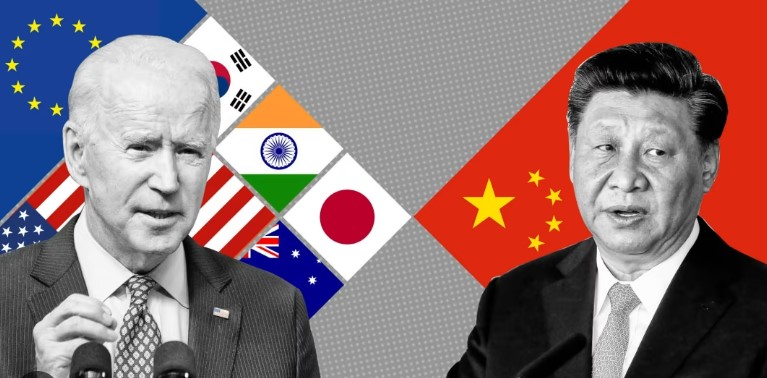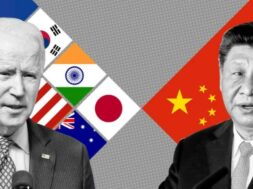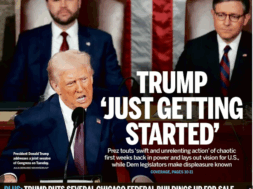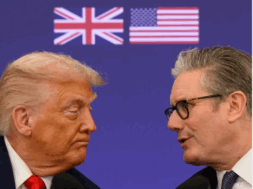
Roving Periscope: Biden prohibits new investments in China’s high-tech cos
Virendra Pandit
New Delhi: Aiming to prevent American capital and innovations from helping China develop high technologies, that could support its military modernization and undermine the US national security, President Joe Biden has ordered a ban on fresh investments in those sectors in the Asian country.
In a letter to the US Congress, he had said he was declaring a national emergency to deal with the threat of advancement by countries like China “in sensitive technologies and products critical to the military, intelligence, surveillance or cyber-enabled capabilities,” the media reported on Thursday.
In this connection, President Biden on Wednesday signed an executive order prohibiting some new US investments in China in sensitive technologies like computer chips and requiring government notification in other technology sectors.
The long-awaited order authorizes the US Treasury Secretary to prohibit or restrict American investments in Chinese entities in three sectors: semiconductors and microelectronics, quantum information technologies, and certain Artificial Intelligence (AI) systems.
The Biden Administration said the restrictions would also apply to “narrow subsets” of the three areas but did not give specifics. The measure also targets private equity, venture capital, joint ventures, and greenfield investments.
Reacting to the order, China said on Thursday it is “gravely concerned” about it and that it reserves the right to take countermeasures.
The US order will affect normal operation and decision-making of enterprises and undermines the international economic and trade order, the Chinese Commerce Ministry said in a statement.
China hopes the US will respect the laws of the market economy and the principle of fair competition, and refrain from “artificially hindering global economic and trade exchanges and cooperation, or set up obstacles for the recovery of the world economy.”
The US move primarily focuses on investments in Chinese companies developing software to design computer chips and tools to manufacture them. The US, Japan, and the Netherlands dominate these fields, but China has also been working to build homegrown alternatives.
The White House said President Biden consulted allies on the plan and incorporated feedback from the Group of Seven (G-7) nations.
“For too long, American money has helped fuel the Chinese military’s rise,” said Senate Democratic Leader Chuck Schumer. “Today the United States is taking a strategic first step to ensure American investment does not go to fund Chinese military advancement.”
The regulations will only affect future investments, not existing ones, the US Treasury said, but it may ask for disclosure of prior transactions.
The US move could fuel tensions between the world’s two largest economies, which are already engaged in a trade war. The Chinese embassy in Washington said it was “very disappointed” by the measure.
US officials said the new prohibitions aimed to address “the most acute” national security risks and not to separate the two countries’ highly interdependent economies.
But the Republicans said the order had loopholes, such as only applying to future investment, and was not aggressive enough.
Republican Senator Marco Rubio said the Biden administration’ plan was “almost laughable.”
“It is riddled with loopholes, explicitly ignores the dual-use nature of important technologies, and fails to include industries China’s government deems critical,” he said.
It will prohibit some deals and require investors to notify the government of their plans for others.
The Treasury said it anticipates exempting “certain transactions, including potentially those in publicly traded instruments and intracompany transfers from US parents to subsidiaries.”
The Chinese technology industry, once a magnet for US venture capital, has already seen a drastic decline in American investment amid intensifying geopolitical tension.
In 2022, total US-based venture capital investment in China plummeted to USD 9.7 billion from USD 32.9 billion in 2021. This year so far, these investors only put USD 1.2 billion into Chinese tech startups, the media reported.
In Washington, a Chinese Embassy spokesman said the White House had not heeded “China’s repeated expression of deep concerns” about the plan.
Over 70,000 US companies do business in China. The restrictions will hurt both Chinese and American businesses, interfere with normal cooperation and reduce investor confidence in the US, he said.
The Semiconductor Industry Association expressed the hope the order will enable “US chip firms to compete on a level-playing field and access key global markets, including China.”














